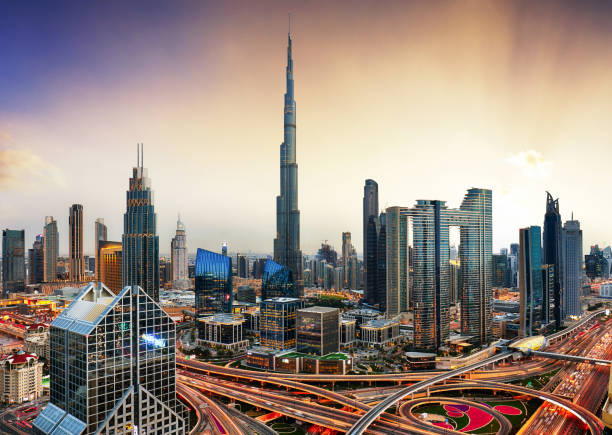Comprehensive Guide to Obtaining a Residence Visa in Dubai
Obtaining a residence visa in Dubai allows you to live and work in one of the most vibrant cities in the world. With its bustling economy, rich culture, and diverse atmosphere, Dubai attracts many expatriates looking to establish their lives in this dynamic region. In this guide, we will walk you through a detailed, step-by-step process to help you understand how to get a residence visa in Dubai.
How to get residence visa in Dubai

What is a Residence Visa?
A residence visa in Dubai is an official document that grants a foreign national the legal right to reside in the United Arab Emirates (UAE) for a specified duration. This visa enables expatriates to live, work, and enjoy various benefits offered in the country. It is important to note that the residence visa may not automatically confer the right to work, which is typically managed through a work permit and should be linked to the residency status. Depending on your circumstances, you can apply for a residence visa as an employee, investor, or family member.
Types of Residence Visas in Dubai
Dubai offers several types of residence visas suited to various purposes. Here are some key categories:
- Employment Visa: Issued to expatriates sponsored by a Dubai-based employer.
- Investor Visa: Granted to individuals who invest a specified amount in a Dubai company or real estate.
- Family Visa: Available for family members (spouse and children) sponsored by a UAE resident.
- Retirement Visa: Designed for retirees who wish to live in the UAE.
- Freelance Visa: For self-employed individuals working on a freelance basis.
Eligibility Criteria for a Residence Visa

General Requirements for Applicants
Before applying for a residence visa, applicants must meet certain general eligibility criteria. These often include possessing a valid passport with a minimum of six months’ validity remaining, meeting the specified age requirements (usually 21 years or older), and demonstrating good conduct and health. Furthermore, applicants may also need to present financial proof, ensuring they can support their living expenses in Dubai without relying on local resources. Additional requirements may arise based on the specific type of visa you are applying for, making it essential to understand the full scope of expectations beforehand.
Specific Requirements for Different Visa Categories
Each type of residence visa has specific requirements tailored to its purpose. For instance:
- For an Employment Visa: Applicants typically need a confirmed job offer from a UAE employer who will act as a sponsor. The employer must also provide proof of their own eligibility.
- For an Investor Visa: The applicant must demonstrate that they are investing in a Dubai-based business or real estate that meets the statutory monetary threshold (AED 1 million in real estate investment, for instance).
Furthermore, family visa applicants will need to provide proof of relationship with the UAE resident, such as marriage or birth certificates. Gathering all necessary documents at the beginning of the application process can speed up approval times and prevent delays.
Preparing Your Documents

Essential Documents Needed for Application
When applying for a residence visa, accurate documentation is crucial. The essential documents generally include:
| Document Type | Description |
|---|---|
| Passport | A valid passport with at least six months of validity remaining. |
| Passport-sized Photos | Recent photos that meet the UAE’s visa photo specifications. |
| Employment Offer Letter (if applicable) | A letter from your employer confirming your job offer and position. |
| Health Insurance | Proof of valid health insurance coverage in the UAE. |
| Proof of Residence | A lease agreement or utility bill in your name for residence verification. |
In addition to these essential documents, applicants should include any other documents specified by the visa category. It’s advisable to double-check with relevant authorities to ensure compliance with the latest requirements.
Tips for Document Verification
Document verification is a critical step when applying for a residence visa in Dubai. To avoid complications, ensure all documents are accurate, up-to-date, and well-organized. It is beneficial to make multiple copies of each document, as these may need to be submitted at different application stages. Additionally, consider obtaining attested documents, especially for educational certificates and marriage licenses, to meet government requirements. Checking your application thoroughly before submission can significantly reduce the chances of rejection, allowing for a smoother process.
The Application Process
How to Apply for a Residence Visa
The application process for a residence visa in Dubai can be efficiently navigated if you follow the proper steps. First, ensure that you have gathered all the necessary documents, as outlined earlier. Once your documentation is in order, you can begin the application process through various channels depending on your visa type. You may choose to apply via the General Directorate of Residency and Foreigners Affairs (GDRFA) in Dubai or through an authorized typing center. Online applications are often encouraged for quicker processing, and you can utilize the GDRFA’s e-services to facilitate this step. It’s important to fill out the application form accurately and completely, as any discrepancies may lead to delays or rejection. After submitting your application, you may receive a reference number, which can be used to track your application’s status.
Where to Submit Your Application
Your application submission is typically directed toward the GDRFA or related services, depending on your residency purpose. Individuals seeking an Employment Visa should ideally submit their applications through the employer’s Human Resources department, which may have specialized knowledge in handling visa requirements. For family visas, you can submit applications either online or at authorized centers. Post submission, applicants might have to attend a medical examination and biometric verification at designated healthcare facilities. Completing the medical examination is vital for the final approval of your residence visa. After successful processing, you will be notified to collect your residence visa through the appropriate channels.
Conclusion
Obtaining a residence visa in Dubai is a systematic process that requires careful preparation and understanding of the various stages involved. By familiarizing yourself with the types of residence visas available, eligibility criteria, and required documentation, you can significantly streamline the application process. Pay close attention to detail throughout your application and ensure that all supporting documents are accurate and well-organized. With a positive attitude and proper planning, you can successfully secure your residence visa in Dubai and embark on a new chapter of your life in this mesmerizing city. Remember to stay informed about any changes in visa policies, as the UAE frequently updates its regulations to enhance user experiences.
FAQs
1. How long is a residence visa valid?
A Dubai residence visa is generally valid for one to three years, subject to the type of visa issued and the conditions determined by the sponsor. Renewals are possible and should be initiated before the expiration date to avoid any issues.
2. Can my family live with me on my residence visa?
Yes, if you hold a residence visa, you can sponsor family members such as your spouse and children to obtain a family visa, which allows them to reside in Dubai. You will need to provide proof of relationship along with your application.
3. Is medical insurance mandatory for the residence visa application?
Yes, obtaining medical insurance is a mandatory requirement for acquiring a residence visa in Dubai. The insurance cover should meet the minimum requirements set by the UAE government and is designed to ensure expatriates have access to healthcare services in the country.
4. What happens if I overstay my residence visa?
Overstaying your residence visa may result in fines and legal complications. The UAE imposes fines for each day of overstay, and repeated violations can lead to further disqualifications or the risk of deportation. It’s essential to stay updated with visa expiry dates and apply for renewals on time.
5. Can I switch jobs while on a residence visa?
Yes, you can change jobs while holding a residence visa. However, you must follow the proper legal procedures to transfer your visa sponsorship from your current employer to your new employer’s organization. It’s important to ensure this transfer is completed to maintain legal residency in Dubai.







